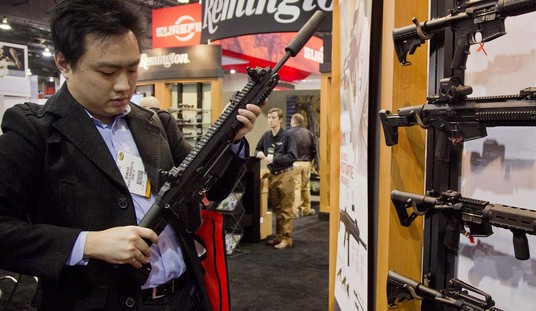A while back, I wrote about the stigmatization of gun ownership. That post was pretty well received and I was invited to go on a radio program to talk a bit about it. During that interview, I was asked if there were other examples of this kind of behavior, and one example I gave was smokers.
You see, smoking used to be a common activity. Even some non-smoking homes had ashtrays for smoking guests. It was an everyday thing. Then people began to push smokers out of polite society. They were relegated to going outside for a smoke. Even then, they got dirty looks from people walking by.
They’d been stigmatized.
Of course, there are a lot of differences between smokers and gun owners.
Yet one of the men behind the shift in attitudes toward smoking and smokers thinks he can apply the same tactics to gun ownership.
Many Americans believe our hopes for gun reform died at Sandy Hook. If the deaths of 20 first graders didn’t convince America to change, the line of reasoning goes, nothing will. But Sandy Hook could turn out to have been a turning point, according to Dr. Michael Siegel, professor of Community Health Sciences at Boston University’s School of Public Health, who has a radical idea for overcoming the gun control stalemate.
Siegel, the co-author of “Marketing Public Health: Strategies to Promote Social Change,” made his name in tobacco control. His research was instrumental in reframing the national conversation about smoking from smokers’ rights, which pitched smokers against non-smokers, to public health, which united the American people against Big Tobacco. The result has been one of the most dramatic behavior shifts in American history, as smoking rates declined from 42% in 1965, when the CDC started tracking, to an all-time low of 14% in 2017.
When we spoke recently, Siegel explained that as he watched the post-Sandy Hook stalemate, he began to wonder if the strategies that worked for tobacco control could work for gun control. Like Big Tobacco, Siegel argued, “The NRA has framed the issue at the individual level, as gun owner vs. non-gun owners. They paint it as a highly controversial issue that is basically a question of the Second Amendment versus the desire to reduce gun violence.”
The problem with this lies in those differences between smoking and guns I alluded to earlier.
For example, smoking doesn’t offer any kind of benefit. It’s something that hurts the individual as well as anyone in the area. Guns, on the other hand, are used 2.5 million per year defensively.
As such, there’s absolutely no similarities between guns and smoking.
Luckily, Siegel isn’t stupid. He did some homework. He delved into the firearm community. What did he find? Precisely what he wanted to find:
Siegel’s explorations confirmed what the data suggests. The vast majority of gun owners never use a gun to hurt another person, and most want strict safety and purchase regulations as much as any gun reform advocate.
Oh, I doubt that.
Though, in fairness, how many told him what he wanted to hear? Where did he go and who did he talk to? After all, conversations with Liberal Gun Club and conversations with the Oathkeepers are likely to be quite different in a great many ways, even though both support gun rights.
That said:
However, by framing guns — and by extension gun owners — as the problem, the gun control movement has taken the people who know the most about guns and have the greatest investment in making them safe out of the conversation.
“When you ask gun owners privately, they support gun control laws, but they never speak publicly,” Siegel said. “What’s causing the problem is that you’ve got a population of people that don’t feel respected, don’t feel their culture is being respected, feel like everyone else is out to get them and thinks they are the problem. Gun owners are not able to engage in gun violence prevention because they feel alienated.”
Well, on that last part, he’s right. More or less.
You see, most of us don’t see gun control as gun violence prevention. We see it as an infringement of our rights because that’s precisely what it is. It’s an effort to curtail our ability to exercise our constitutionally protected right to keep and bear arms. Even cases like universal background checks that, in theory, wouldn’t stop law-abiding citizens from buying guns are still an infringement. A right delayed is a right denied, after all.
While Siegel wants anti-gun groups to bring us into the fold and learn from our knowledge of guns as well as to dispell the idea that it’s us versus them, there’s a problem with that. It is us versus them. The truth is, while I’m more than willing to work to find a common solution to gun violence, I can’t work with people who see gun control as the only viable strategy despite ample evidence to the contrary.
Of course, I’m quite sure Siegel didn’t do this with smokers. After all, smokers were demonized and pushed out of polite society, much like gun owners are experiencing right now.
I’m also quite sure that he doesn’t really care all that much about anything other than advancing gun control.
That’s a shame, too, because if gun violence is a public health crisis like anti-gunners claim, then maybe we should be looking at all possible causes for the problem rather than focusing on a tool with no volition of its own. Especially one that, unlike tobacco, saves so many more lives than it’s blamed for taking.








Join the conversation as a VIP Member